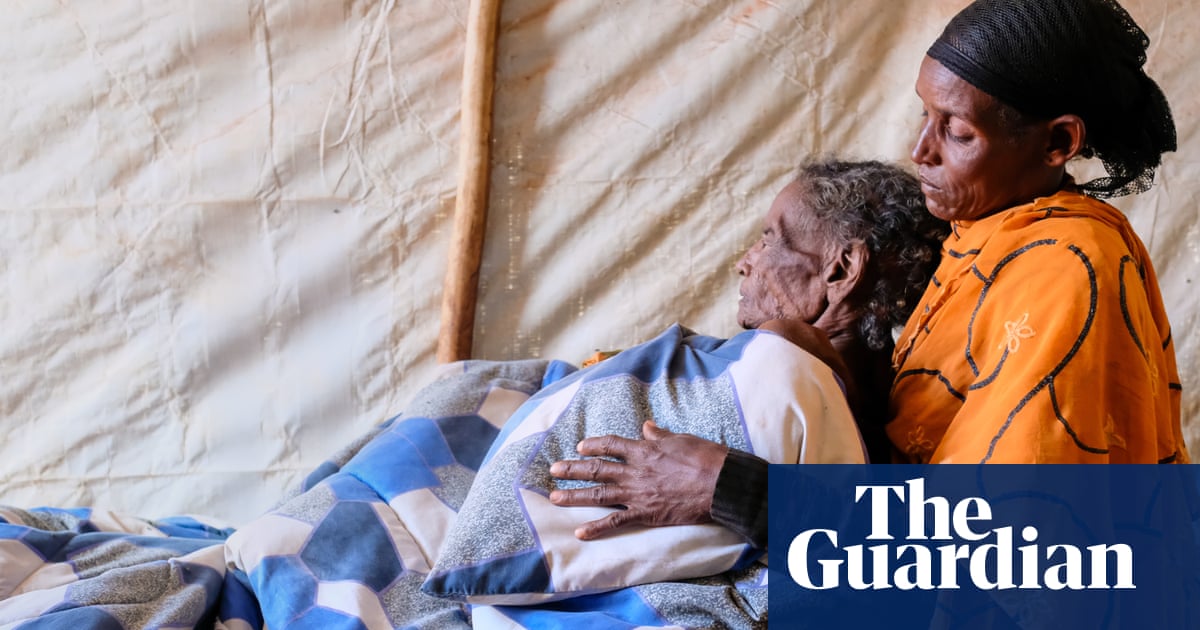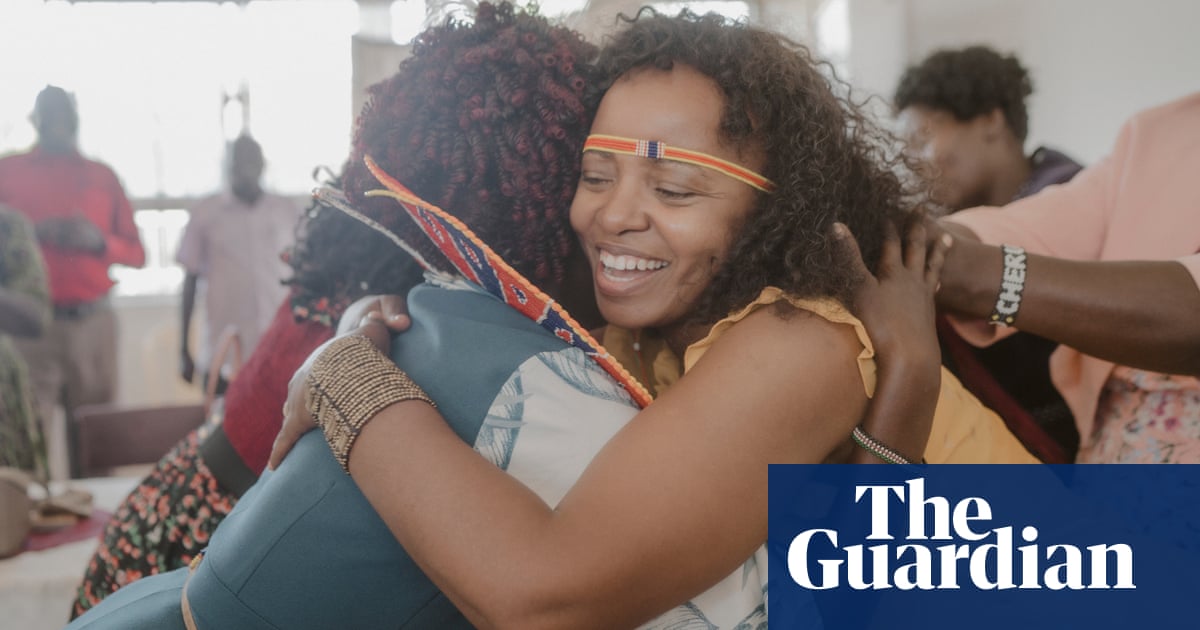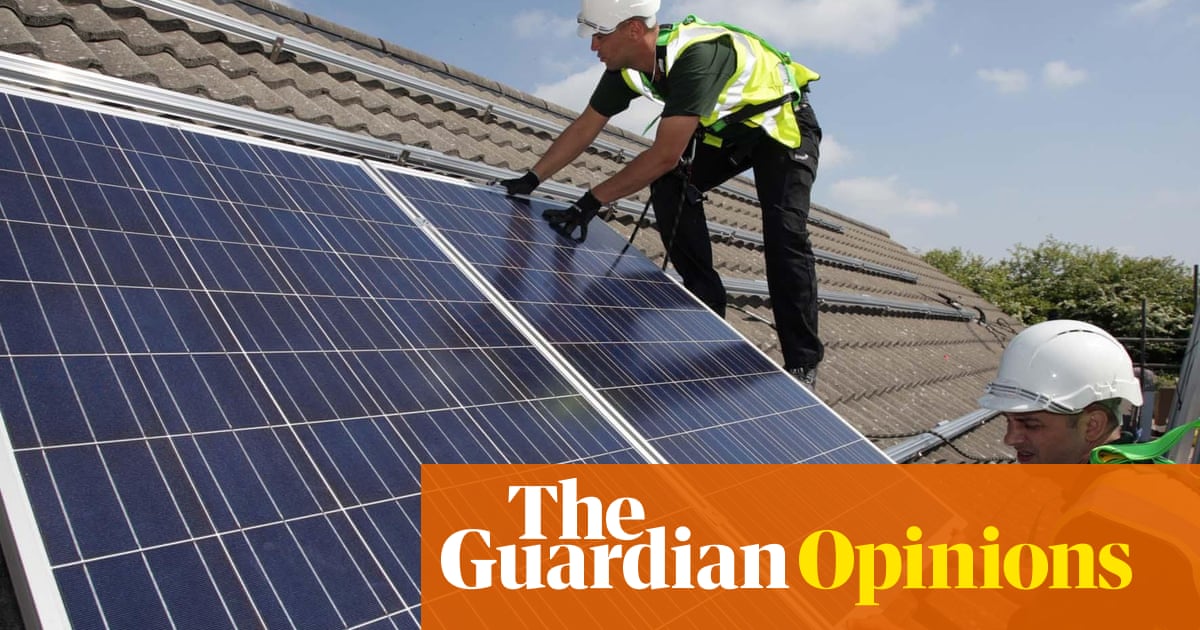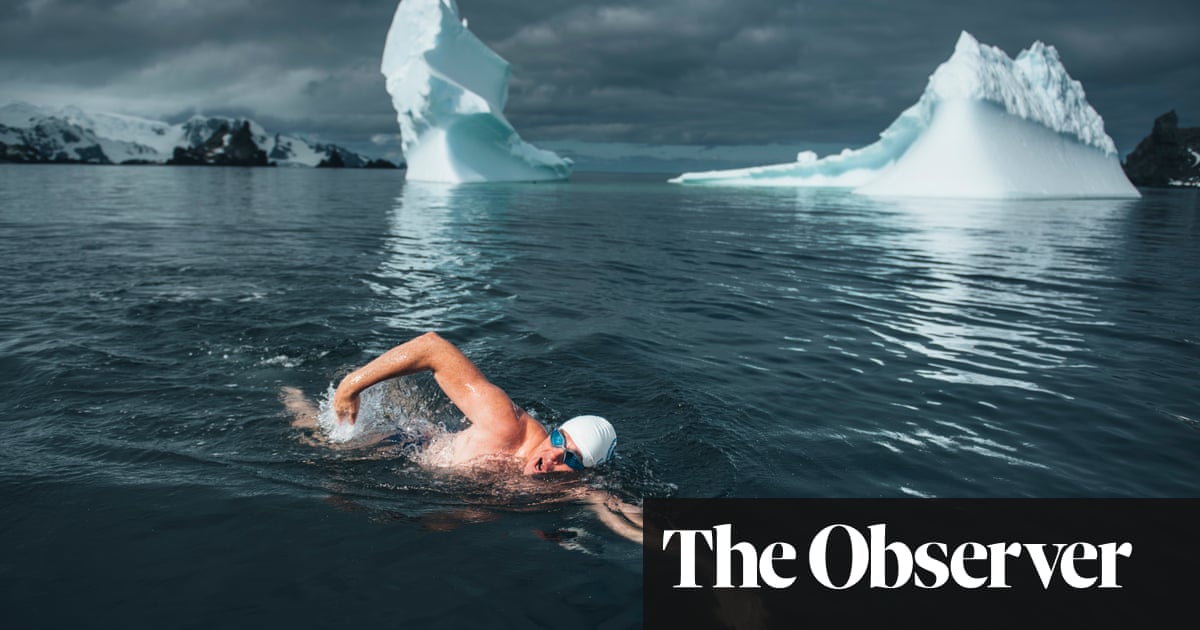
After two and a half years of drought, rain has finally returned to Borena in southern Ethiopia. Recent downpours have turned the landscape green and produced enough grass for grazing animals.
But they have come too late for 89-year-old Saku Shuna, who lies in an airless tent, cradled by her daughter Loko. Like the other 28,000 people in this camp for the displaced outside the town of Dubuluk, she was a herder who relied on cattle. She came here after thirst, hunger and disease claimed her herd a year ago.
“My mother was a strong and vibrant woman,” says Loko. “She walked everywhere and drank milk whenever she liked.”
Now Saku is so weak from hunger that she cannot sit up or even speak. She gets a few kilos of cornmeal a month as aid from an NGO, but it is too tough for her to digest. The only thing her stomach can handle is milk, but Loko has run out of money to buy it.
“I feel helpless,” Loko says. “I am just waiting for her to die.”
The drought in the Horn of Africa is the worst in four decades. It could not have happened without the human-induced climate crisis, which has disrupted weather patterns and caused the failure of five consecutive rainy seasons, according to a recent study. Some 22 million people are at risk of starvation in Kenya, Ethiopia and Somalia.
Older people such as Saku are among the most acutely affected. In Borena, half of those over 60 are malnourished. This is the highest rate ever recorded among old people in the area, according to HelpAge International, an NGO, and far above the local malnutrition rate of 19% among children.
Yet there is little help for old people from aid agencies, which prioritise the targeting of children and mothers, says Samson Yigezu from HelpAge. The Ethiopian government’s drought response plan contains no measures for the elderly, for example.
This is despite the fact that old people experiencing hunger need special interventions, such as nutrient-rich, easy-to-swallow food. This is sometimes distributed at the displacement camp where Saku lives, but only to mothers with young children.
“The old people here are in a terrible condition,” says Gondana Kanchora, a camp community leader. “They are pastoralists who are used to drinking milk, but now their animals are dead. They don’t have strong teeth and they cannot eat normal food given by the NGOs.”
HelpAge International is the only organisation specifically helping old people hit by the drought in Borena. It works with local partners to distribute emergency supplies, cash and water to people over 60 and their families.
“Older people are the group with the highest level of malnutrition,” says Yigezu. “Yet they are completely overlooked by everybody – aid agencies, the government, even the community itself. It is a huge failure.”
Some are trying to address this. Fitsum Degama, a local official, says he has raised the plight of old people in Borena with the government, but without success. “They are forgotten,” Degama says.
Putting old people at even greater risk in Borena is a local custom that says elders should not eat until the family’s children are fed. Duba Galgalo, 78, explains that this practice is closely followed when times are lean.
“Since the drought started, I always eat last,” says Galgalo, who has 12 grandchildren. The family share one meal a day. “If there is nothing left after they have eaten, I will pass the evening without food. But at least I feel relieved that the children have eaten.”
Old people are also vulnerable to exploitation during droughts. Sitting outside his tent in the camp and wrapped in a ragged white shawl, Kiro Godana, who is in his 90s, says he has seen many droughts but that this one is the worst. “In the past, it might not get rainfall for one season. We might lose one to two cows and the others would survive. We had ways of coping. But this one is much longer. That’s why our cows didn’t survive.”
Godana is partially deaf so questions have to be shouted loudly into his ear. He responds in a hoarse whisper. The toll malnutrition has taken on his body is clearly visible: his ribs protrude through his skin and weeping wounds run down his stick-thin legs.
“My life was normal and good when I had my cows,” he says. “Everything changed when I lost them.”
Conditions are even tougher in the villages outside the camp, which are hard for aid agencies to reach. In Higo, a collection of grass and stick huts about an hour’s drive away, all the young men have left in search of work, leaving behind children, women and the elderly.
Boru Dido, who estimates he is 85, says the drought has left his family with nothing. He has little hope they will be able to replenish their livestock. “It is good the rain has come back, but our animals are already dead,” he says. “There is no way of bringing them back.”












